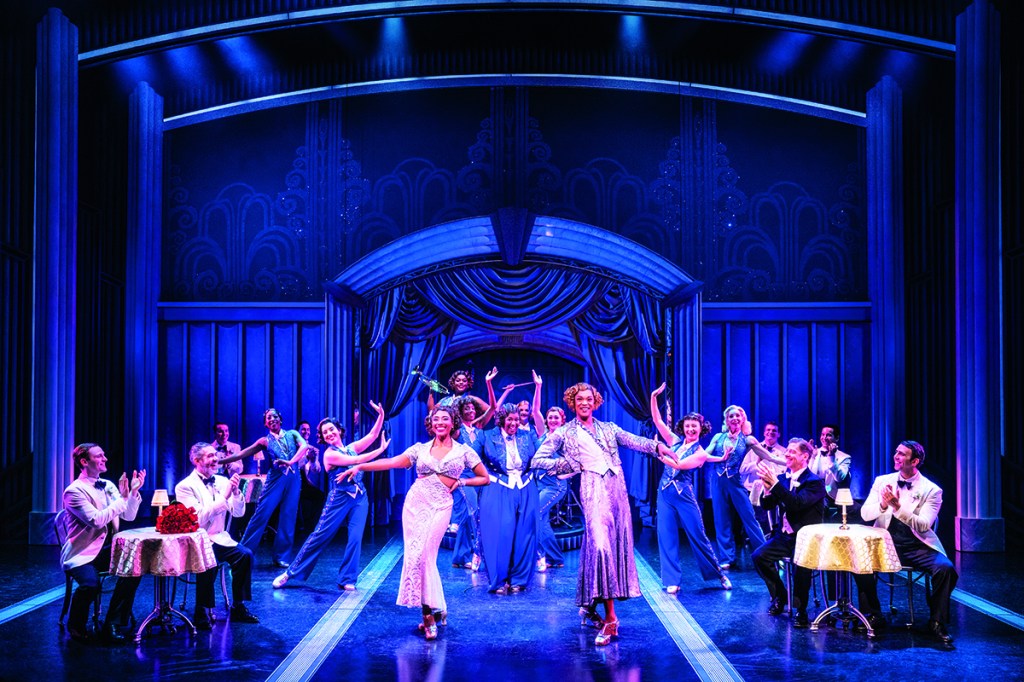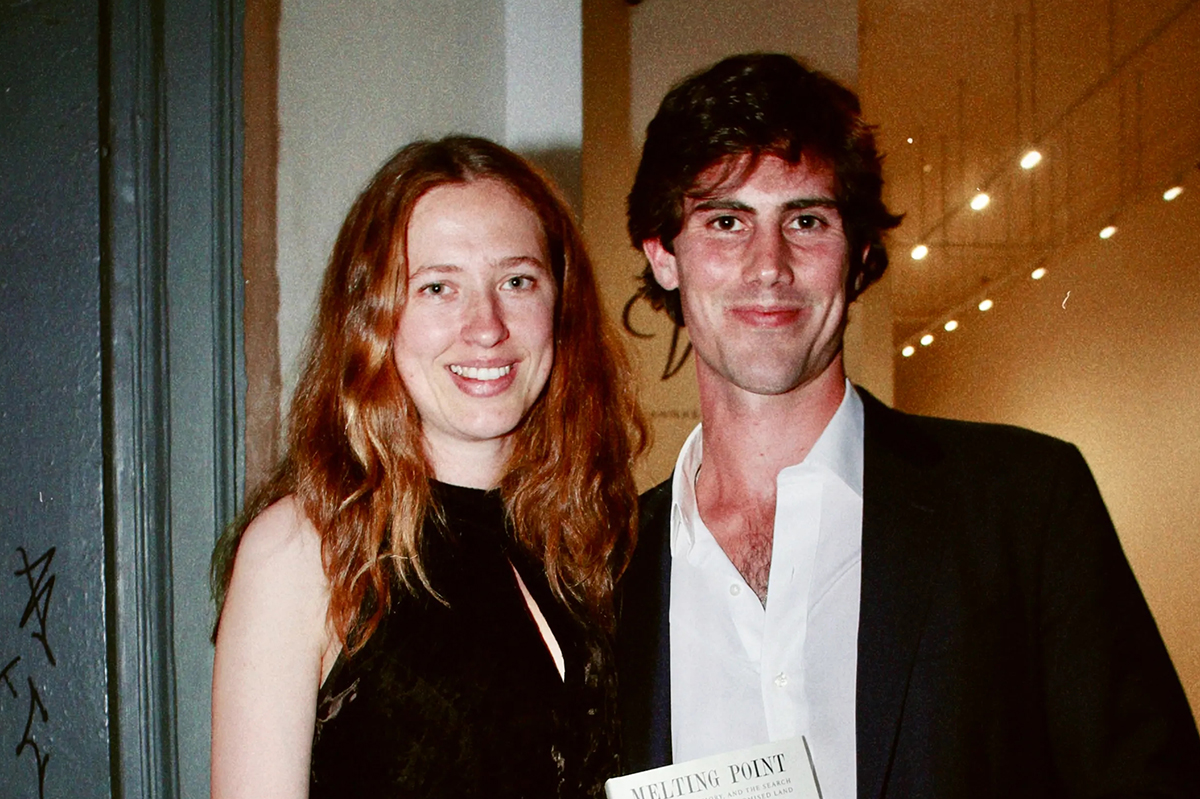The new Some Like It Hot on Broadway has bass player Jerry (J. Harrison Ghee), disguised among Big Sue’s Society Syncopators as “Daphne” to hide from the Chicago mob, decide to embrace the drag lifestyle and elope with his elderly suitor Osgood (Kevin Del Aguila) by the show’s end. (The 1959 film closes with Jerry straining to extract himself from Osgood’s clutches.) Many theatergoers will not expect this update, setting up a bit of dramatic irony too delicious to be unintentional.
What’s a drag show, after all, without a few surprises?
To my knowledge, this irony has gone entirely uncapitalized by headline-writers across the nation. Some Like a Hot Dog! Speakeasy, Don’t Tell! Billy, but Wilder! Jack’s Lemon! And more — a real smorgasbord of possibilities, all untouched. Surely hungrier, more enterprising journalists would have jumped at the feast. You’d think someone sneezed on the salami.
The reason you won’t see any provocative Some Like It Hot headlines is that there’s nothing remotely provocative about the new show. This is a shame because the original film was genuinely scandalous. The Catholic League of Decency condemned it as “seriously offensive to Christian and traditional standards of morality and decency”; it didn’t pass muster under the infamous Hays Code, either; audiences were undeterred. Set in the not-too-distant past of Prohibition, the film took a hatchet to contemporary pieties through its wry reversal of gender norms, its alcoholic leading lady Sugar Kane, played by Marilyn Monroe, and abundant schmoozing, canoodling and under-the-covers rootling.
But writer and director Billy Wilder knew just how far to go. The musicians’ walk on the wild side isn’t free from hazard. As Jerry and his saxophonist pal Joe vie for Sugar’s attention, the danger of leaning too far into their femininity is always lurking. This careful balance of normative and deviant sexuality is what makes the movie’s conclusion so satisfying. On the one hand is Joe (Tony Curtis), who can manage his big-girl pants and a second, male disguise as needed to win Sugar.
On the other hand, the incontinent Jerry (Jack Lemmon) overplays the lady-hand repeatedly, culminating in his ill-advised plan to defraud Joe E. Brown’s Osgood through a fake marriage. The one wouldn’t be intelligible without the other. In farce, to have a winner you need a loser, too.
The elements that made Some Like It Hot so scandalous in 1959 would seem to be mainstream in 2023. But that’s only half the issue. Popular culture has entirely embraced the glitzy, frivolous side of gender-bending — drag, camp, exhibitionism — and tried to memory-hole the other half, the darker side of oversexing. In purging those elements that don’t jibe with the new dispensation — that is, anything masculine or predatory — the current production reduces the charged, sex-swapping premise to a one-dimensional case for having it both ways.
What we get is cream-puff theater, very vanilla and cloyingly sweet. The music by Marc Shaiman is spry, the tunes catchy, but everything comes out at the same big brassy volume. You can’t paint seduction or danger with such a limited palette. (Look to Chicago, set in the same era, for a show that does sexy and quiet well.) Director Casey Nicholaw gives us some lively choreography, but whole swaths of the stage are underused, and the set design is too open and transparent to give us a teeming train car, a luxury yacht or a smoke-filled speakeasy.
Having Jerry change teams adds a not-inconsequential wrinkle to the plot, too, since he was previously the main obstacle keeping Sugar, a self-described lover of saxophonists, from falling for Joe. It’s around the number “Fly, Mariposa, Fly,” containing Osgood’s proposal to Daphne, that the story really unravels. The song is meant to affirm Jerry/Daphne’s new lifestyle as a gay (or at least bi-curious) man (or woman): “Our romance,” Osgood croons, “might be the chance / for you to dance and spread your wings.” But he also sings that “I would never pin such beauty down / You should be free to touch the sky,” which raises questions as to the marital arrangement he has in mind. Does he like to watch?
You might also ask what sort of development Daphne, who has mostly rejected Osgood’s advances so far, is meant to be undergoing here. Commitment? Liberation? A happy combination of both? The show declares its own commitments in the next number, after Daphne tells Joe about the engagement, when she launches into an extended ode to… not Osgood. “Tonight I realized / Daphne is my one true love,” she sings. “The lady that I’m lovin’ is me.” That’s commitment for you.
This article was originally published in The Spectator’s February 2023 World edition.





















